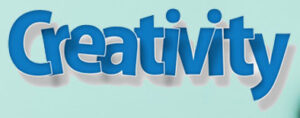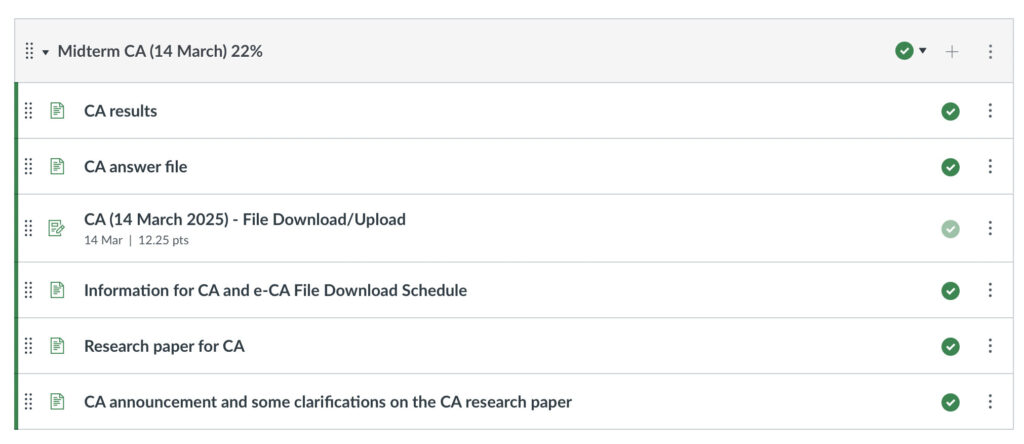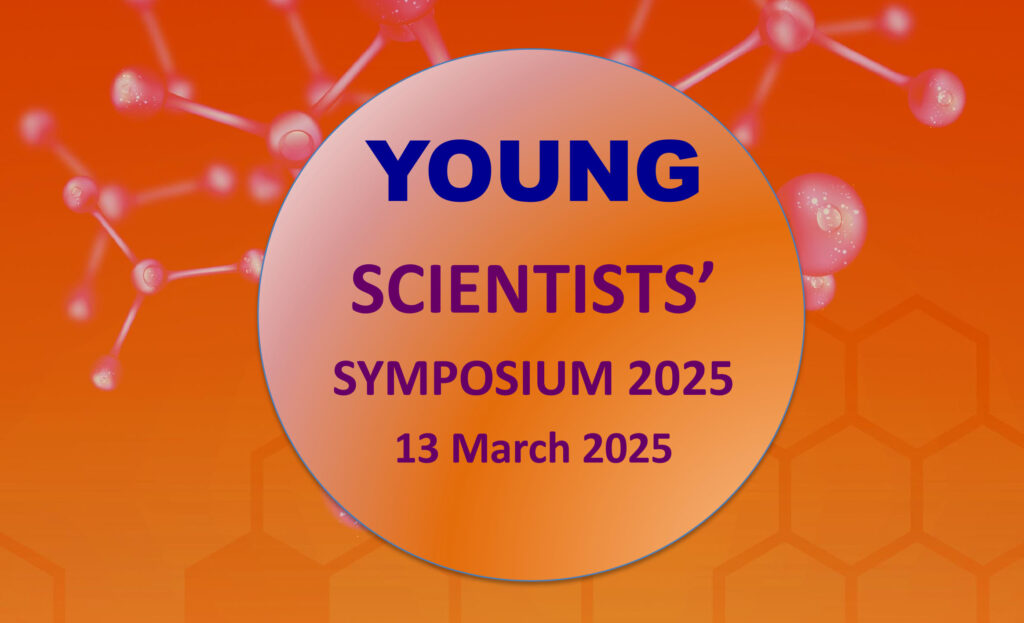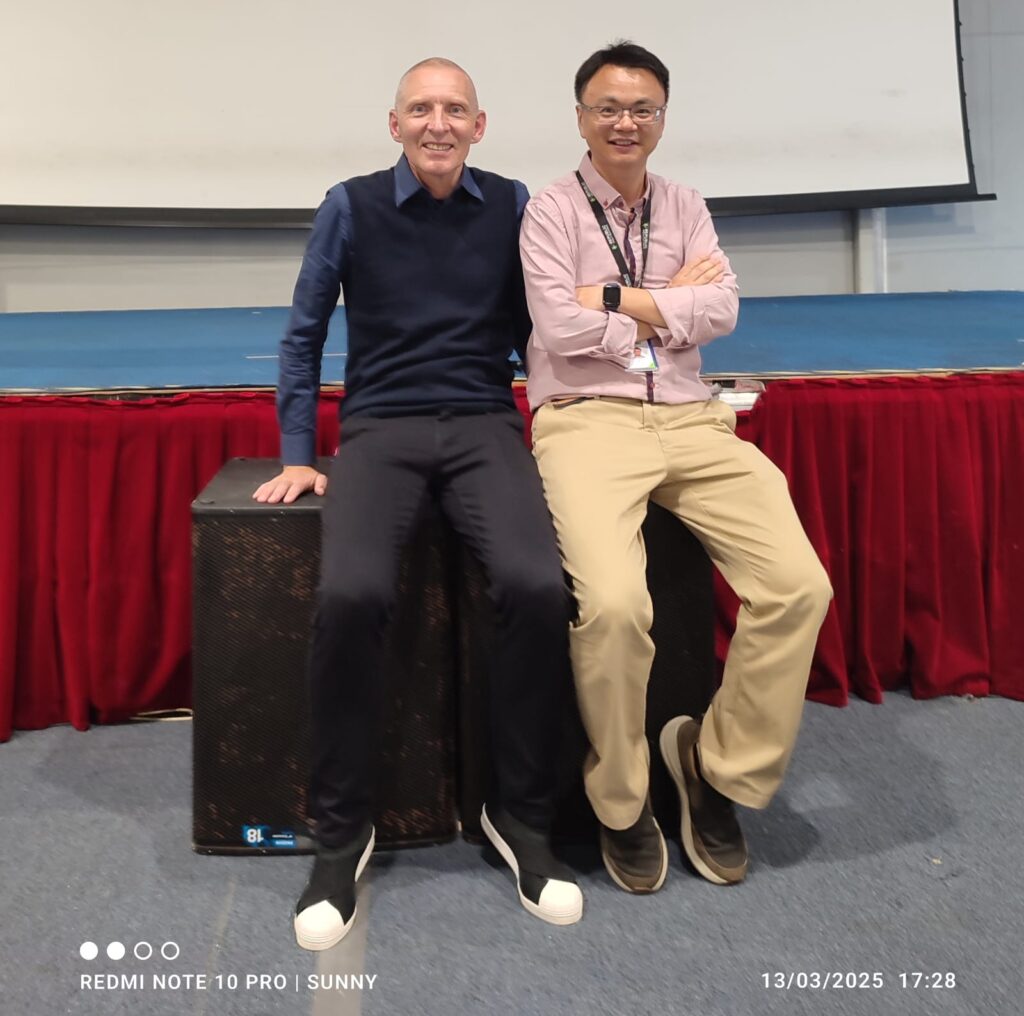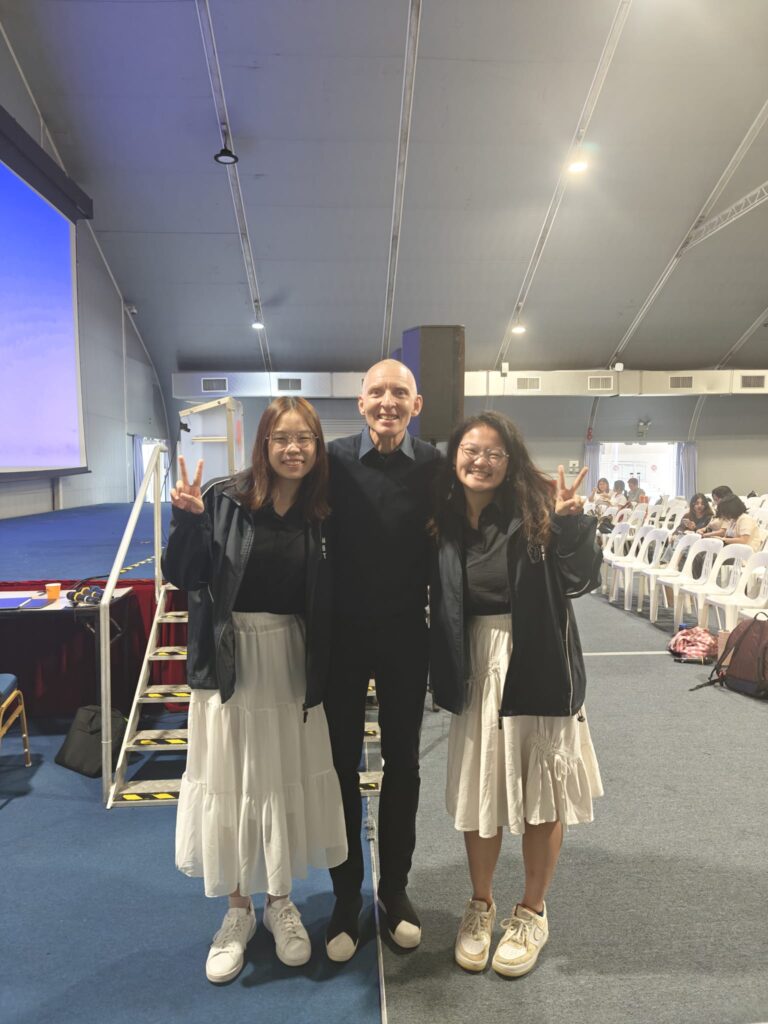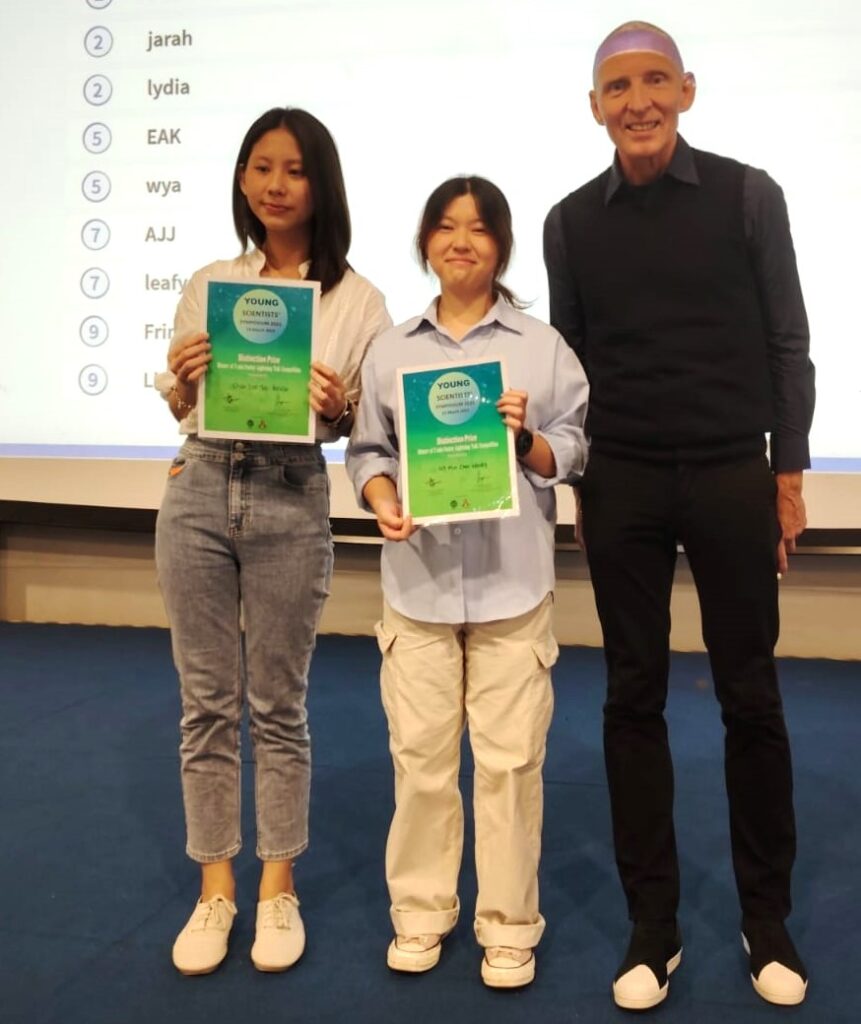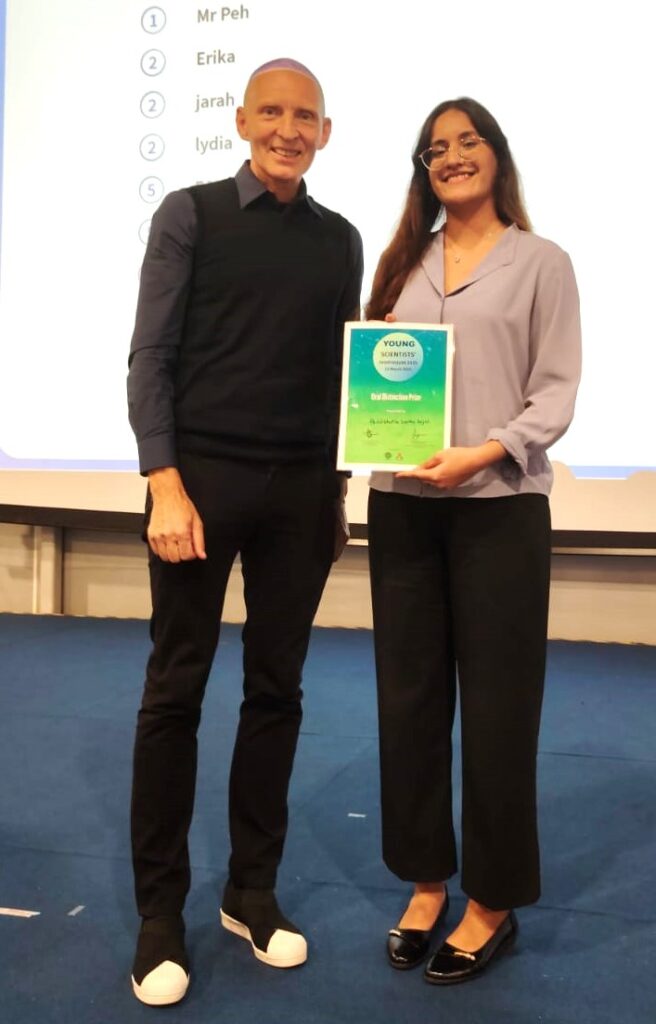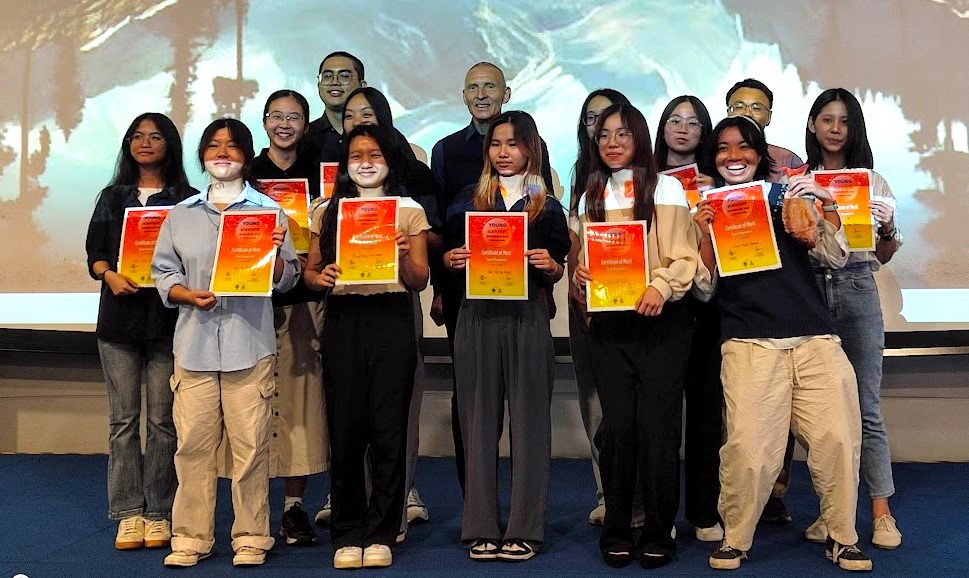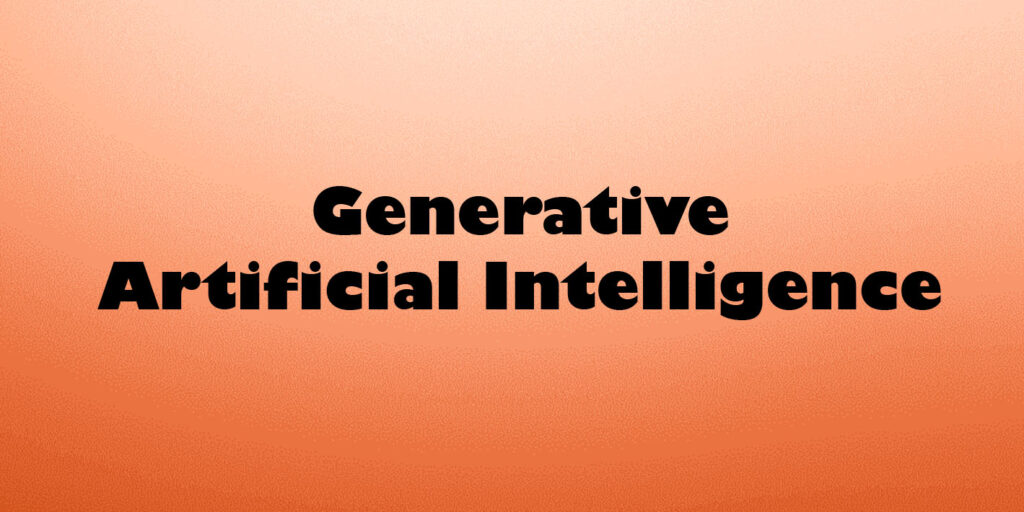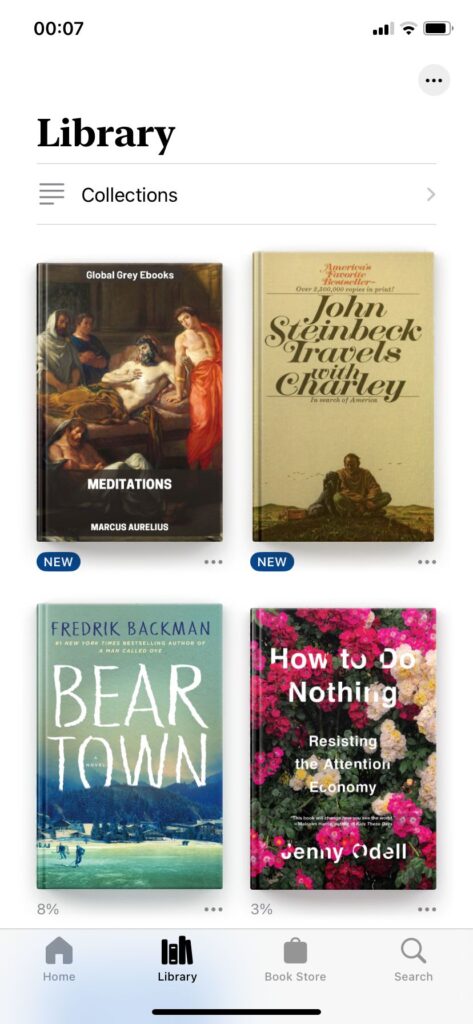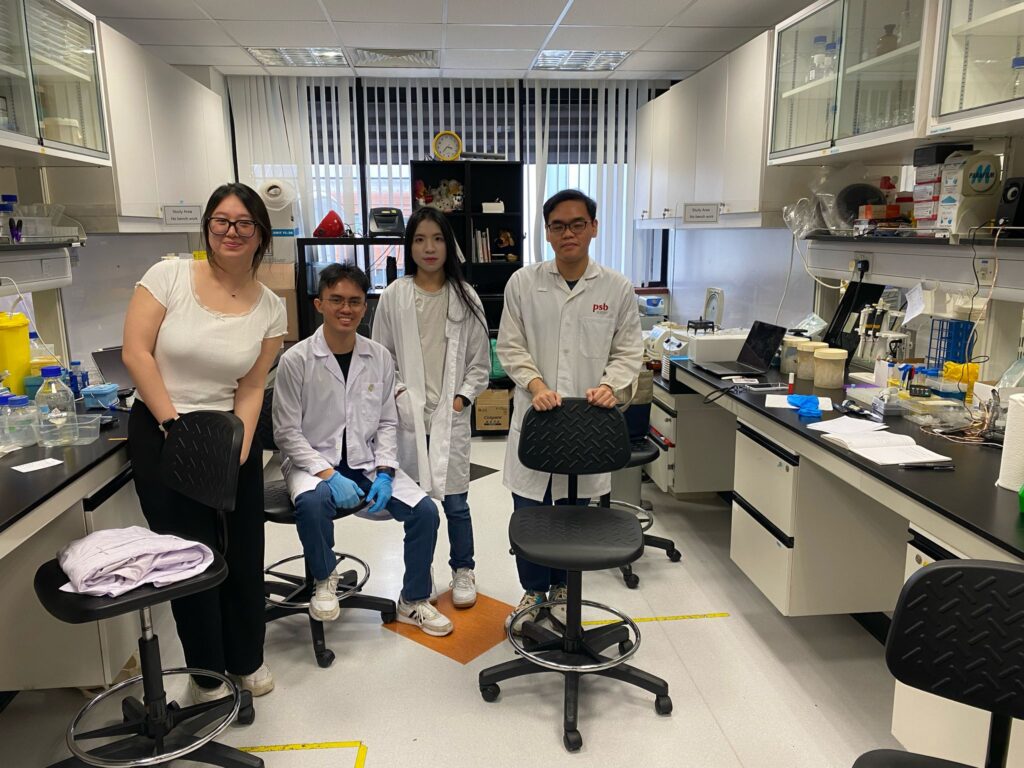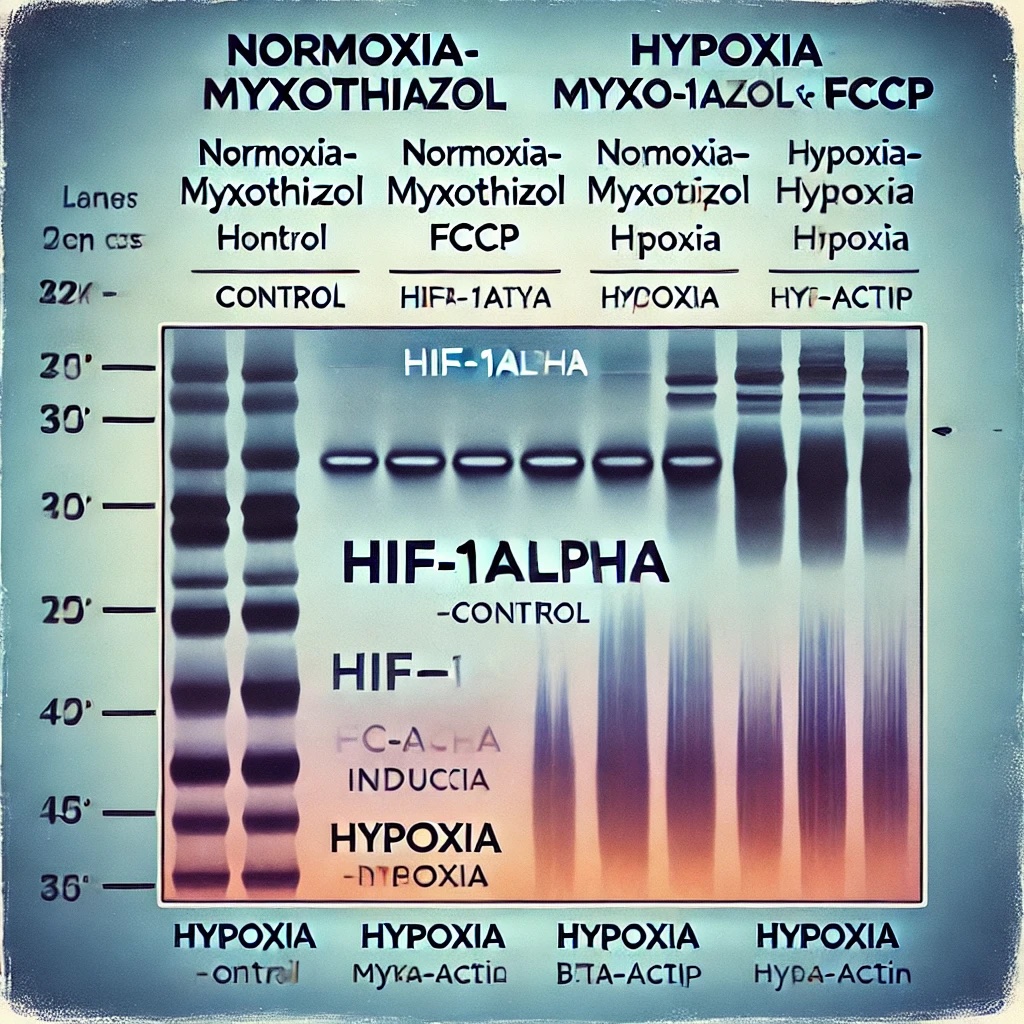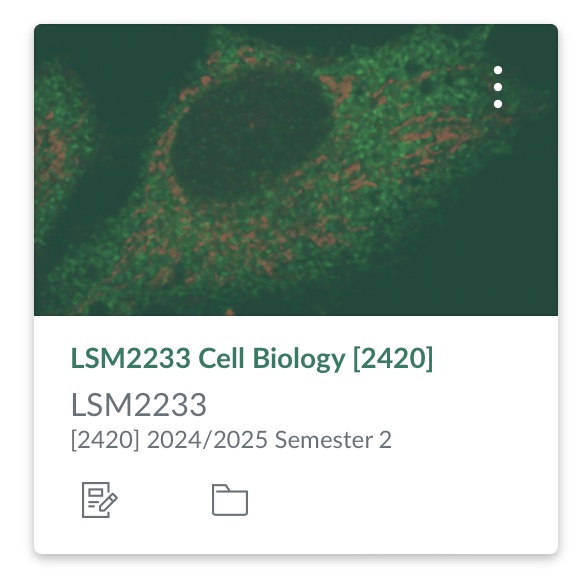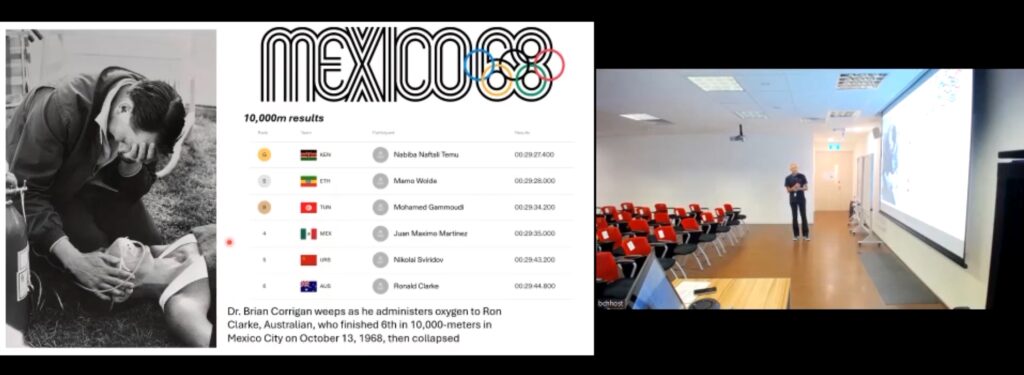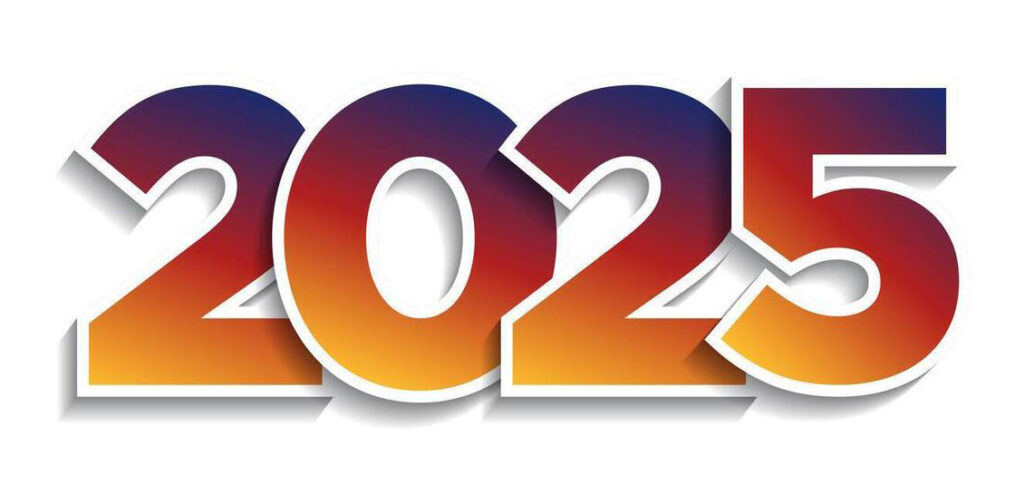WEEKLY HIGHLIGHTS 2025 FIRST HALF
HIGHLIGHTS FOR WEEK OF 31 MARCH – 6 APRIL
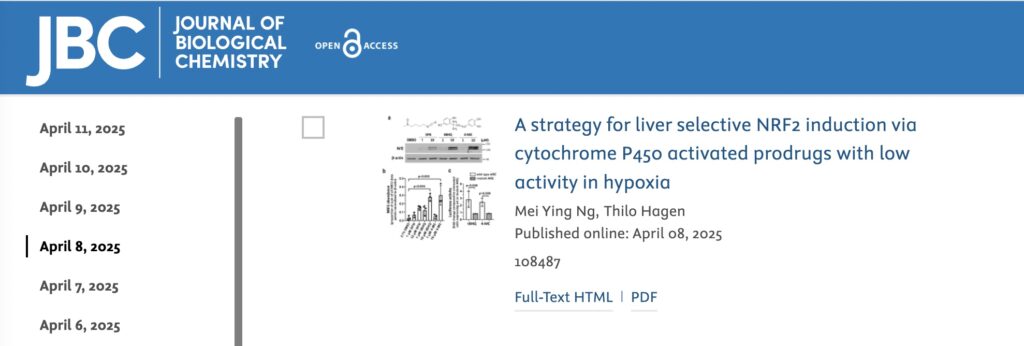
This week our lab had a new paper accepted in the Journal Of Biological Chemistry, or JBC in short. Any publication means a lot to me, but publishing in JBC is especially exciting. Way back when I was a student and postdoc at Tufts University, publishing in JBC was always the aspiration of any graduate students. And if you published in JBC, it was considered a big achievement. I think it still is!
At the beginning of the year I set myself a goal of having one visible achievement (that I could put into my CV) every month. This is because over the past years I have spent so much time on learning and improving that I thought it is finally time to obtain some results to show for all my efforts. This publication is in fact the first achievement I had this year, and it is already April. My teaching has occupied too much of my time, or rather, I have occupied too much of my time for teaching. But the semester is coming to an end soon and there is still much time this year to catch up!
HIGHLIGHTS FOR WEEK OF 24 – 30 MARCH
Promoting creative thinking
Last week I discussed why it may be important to not hand over all of our critical thinking, work and problem solving to Generative AI. Another important aspect related to my own teaching in this new reality is helping students to improve skills that GenAI may not be able to master well.
One of these skills may be human creativity. Hence, here I would like to discuss two important questions:
Will Generative AI obviate the need for human creativity? And is promoting creative thinking skills important in university education?
In a very interesting post on Linkedin that I came across this week, Jason Miller highlights an important contradiction. On the one hand, the often predictable results that Generative Ai tools produce highlight the need for coming up with unique, risky and daring ideas by ourselves. As such, Jason Miller writes that “the value of creativity has never been higher”.
On the other hand, “the opportunity for each individual to neglect creativity has never been higher either”. AI based tools are incorporated into more and more spheres of our daily life, including AI summaries when we google things and recommendations on how to start our emails or how to improve our writing or powerpoint presentations.
While I admit that this AI integration into daily life makes a lot of things easier (for instance preparing my teaching materials and activities), I do feel a bit uncomfortable about the possibility to take shortcuts all the time.
Sometimes I feel outright insulted, for instance when the reading app on my phone suggests to provide an AI summary of the book that I am reading. I am thinking “NO!”. I want to enjoy the process of reading a book, and I do not to want get a brief summary of the book’s content. AI (or the people who built this feature into my phone app) are missing the point of why most people read books – to be able to experience emotions and to provide opportunities for reflection and creative thinking.
And so I am sitting there with the AI summary option taking up space on my already too small screen, not being able to remove the option, and I am thinking this is wrong. Where will we end up if AI takes over everything.
This then brings me to the point of whether we will still need creativity, or whether generative AI can take over that role, too. Daniel Bonner, the Global Chief Creative Officer at Wunderman Thompson, describes creativity as, “the capacity to have an original thought”.
Having original thoughts is something that AI is currently not capable of. AI can only propose what is conventional wisdom, based on most commonly adopted approaches. However, in real life it is often the non-conventional approaches that succeed.
For instance, I have recently been listening to a podcast series where each episode is between four to eight hours long. Conventional wisdom (and most likely ChatGPT) would tell us that a good recipe for success is to record podcasts that are between 30 min to 1 hour, which is what most podcasters do. But when I was listening to the first episode, I began to appreciate the depth of analysis, the elaborate setting of contexts and illumination of the bigger picture of the podcast topic, and I became hooked. (When I reached the end of the series, I felt even sad that this experience had come to an end.)
Of course, AI may be capable of coming up with original thoughts in the future. But there is no certainty and hence one question is whether we want to depend on it.
However, whether or not Generative AI will be capable of having original thoughts is not really the main question. The main point for me is that having original thoughts is something that I do not want to give up, because it is what makes me a human and a scientist. And this is one reason why it is important to get students involved in creative thinking.
I recently read an interesting article about how “the advancement of large language models will affect the practice of science”. In it, the authors Botvinick and Gershman argue that “two core aspects of scientific work should be reserved to human scientists”.
Firstly, humans should still ask the important questions. Secondly, AI should serve the human understanding.
In other words, the purpose of generative AI tools should be to help humans to solve problems that are important to humans. As such, the authors argue that it is important to take measures to prevent a scenario where AI solves problems that it decides on its own to be important and where it potentially may not even share its solutions with us.
Asking good questions and remaining the driver of progress and scientific innovation requires creativity. And so perhaps it is time for me to start disregarding some of the craze about generative AI and focus on teaching something as important as creative thinking.
This then of course brings up the next question, how to teach creativity, which I will need to start thinking more about.
HIGHLIGHTS FOR WEEK OF 17 – 23 MARCH
My midterm exam
Last week I conducted my midterm test and I have started to look at the results. The test was entirely based on the figures of a research paper, where the students have to interpret data as well as predict data if some of the experimental conditions or details of the experimental technique are altered.
While I am happy with what I am testing students on, my main concerns are always whether I manage to come up with an exam that is neither too easy nor too difficult and whether I choose a good the exam format, especially given the various constraints in an age where everything is digital.
The difficulty of a test is generally determined by how challenging the questions are and by how much time students have to answer them.
To find out how the students perceived the amount of time given, I conducted a poll after the CA, in which the vast majority of the students expressed that the time provided for the CA was not enough. On the other hand, there were actually only about 20% of students who did not answer all questions. That said, even though students finished the test, it appears that many may not have had enough time to thoroughly think all questions through. As such, I need to make it a point to give a bit more time in the final exam.
With regards to the difficulty of my questions, applying knowledge is rarely easy. Nonetheless, despite the difficulty of my midterm test this semester, I was pleasantly surprised about how well most students answered the questions. It seemed that most students had truly understood the research paper, the figures in it and the general concepts and experimental methods (even if not every detail in it). As such, I feel quite happy that students seemed to have learned things over the past ten weeks.
What about the exam format?
My assessments usually consist of a number of multiple choice or multiple answer questions, short answer questions and questions where students have to draw diagrams. As such, my ideal exam format would be a pen and paper exam where students are given an answer booklet that includes the templates for the diagrams that students need to complete, with free access to their notes and the internet via their laptop. With a hard copy exam format technical problems can be avoided, and it also makes the exam marking easy for me.
However, there are a number of problems with pen and paper exams. Firstly, our department disallowed conducting paper and pen exams, given that the future (and presence) is digital. It is also difficult to justify printing hundreds of exam booklet from an environmental perspective.
Another constraint is the emergence of chatbots and an AI powered google search engine. In the past, I could conduct open internet exams (as long as we invigilated students to prevent communication via their laptops) because the answers to my questions could not be found on the internet. ChatGPT and other chatbots, however, are able to answer some of my questions, especially those related to interpreting of data. Chatbots are currently still not very good at predicting scientific data and incapable of predicting data by drawing diagrams. But this of course may change.
Given these concerns, I decided to conduct a digital exam, where students could access their files on their laptop and hard copy notes, but where internet access was blocked. Students had to answer multiple choice questions and short answer questions in quiz format and had to download a file to complete diagram templates.
This exam format caused a number of technical problems, which turned the test into a stressful experience for a number of students as well as for myself. I certainly do not want to repeat this experience in the final.
Allowing open internet access would definitely avoid many of the technical problems. It also turned out in the end that using ChatGPT would not have helped students much in the midterm test. In fact, it may have cost them valuable time and distracted them more from just thinking of the right answer by themselves.
This brings me to the much bigger concern about using AI tools, apart from using it to cheat – the fact that by allowing the use of chatbots we are encouraging students to develop the habit to consult generative AI as the first go-to solution and to stop thinking for themselves.
Recently, I have been planning an in-class activity based on a research talk, which we watched during class. When I wanted to finalise my activity, it suddenly struck my mind that my students might simply turn to ChatGPT to find a solution. As a result, my initial excitement about the idea of letting students deal with a real life problem turned into frustration. It felt like AI is taking all the fun out of my teaching.
In fact, I felt so frustrated that I started searching online, looking for people who shared my frustration. And so I came across a very interesting article that echoed my concerns, entitled “Generative AI will not make you a better writer – it will destroy creative writing as a way of expressing the human experience“. Even though the post focussed on learning how to write, I feel that it applies to learning many other things.
Below are three quotes from Alex Roddie’s post that bring out the essence of his argument.
“What problem does generative AI actually solve here? We are already drowning in more writing than anyone can possibly hope to read, so we don’t need to be able to make more of it faster. … Maybe AI can help us come up with ideas? Sure, if you are looking for mashups of ideas everyone else has already had. Originality may be overrated, but point of view (which cannot exist without individuality) is king.”
“Using generative AI to create a story, or assist in its creation, means that you are avoiding some of the thinking.”
“Writers who are considering using generative AI in their work are not going to be serious about studying the craft of writing. And if we are choosing to offload the hard parts to a machine, we cannot hope to improve by writing more either. The muscle that is not put under strain will never grow strong.”
And so Alex Roddie concludes that “… generative AI undermines creative intent by robbing us of the thinking process”.
I naturally do not want to encourage that students do use generative AI to come up with ideas that have little originality and that they avoid thinking for themselves. On the other hand, I also feel uncomfortable to conduct exams in an artificial setting that does not correspond to the reality students experience in the real world.
Because of this reluctance to perform student assessments in a setting removed from the real world (in addition to not wanting to introduce extra stress for both students and myself by blocking the internet), I have decided that not allowing open internet access is really not an option for me.
Instead, I have tried to make students aware about how they are undercutting their own learning and creativity by using chatbots by discussing this point in class. I will leave the rest up to them and let them make their own choices. After all, university eduction should help students develop their ability to make their own decisions and provide tools to aid in that process, but not force them to do what we think is best for them.
HIGHLIGHTS FOR WEEK OF 10 – 16 MARCH
Young Scientists’ Symposium for polytechnic life science students – Edition 2025
It has been some 10 years since I have been in charge of organising the Young Scientists’ Symposium. This week we had another successful run of the symposium. And at the end of the symposium, as usual, I felt exhausted but also happy that we did it again!
In preparation for the symposium, there was a lots of things that kept me busy. There was a lot of administrative work. There were many many emails to send. I had to recruit invited speakers and many judges. But there was also anxiety about whether I would finish everything in light of all the other things I had to do and about my opening address, which I literally only finished the night before.
In the end, most things worked out well and the students enjoyed the symposium. And hence, it is timely for me to take a moment to celebrate the success, to feel happy and proud that I made this possible, of course with the help of many amazing contributors.
A big thanks to all the contributors to the symposium, first and foremost Guangwen …
and our invited speakers, my former students Josabella and Vernice (shown in the picture) and Amos!
And thank you to all poly lecturers and students, not only those who won a prize but everyone who participated!
So well done everyone, including myself. There is reason to feel happy!
But of course, not everything was perfect. And that is to a large part because we tried something new, our 5 min Poster Lightning Talk session. My main goals for introducing this activity were to make the symposium more exciting and to give the students an additional opportunity to showcase and present their work.
The way the session was organised was that when registering, all poster presenters could sign up for the opportunity to potentially participate in the 5 min Poster Lightning Talk session. On the day of the symposium, we would then select the best poster presenter from each of the five polytechnics, based on the scores awarded by the two judges that visited each poster. To make this as objective as possible, I tried to design a very simple and concrete judging rubric, which proved to be quite effective. The selected presenters were announced and 30 minutes later they gave their presentations.
Was it exciting?
I believe that the vote at the end was certainly exciting, especially the real time updating of the scores.
Was it a good opportunity for students to showcase their work and and present their work?
For those students who were selected it was a good opportunity to share their work and to gain experience in presenting. However, this opportunity was limited to only a few students.
What about the quality of the presentations?
What became clear is that giving a 15 min poster presentation to a relatively knowledgeable judge is rather different from a 5 min presentation to a more general audience. Some students managed to engage the general student audience better than others. But overall I felt that one would have gained much more from listening to the actual poster presentations compared to the 5 min poster lightning talks.
There were also a number of other problems. Determining the best students based on the poster judge scores was time-consuming and caused delays. Finally, there was time delay when the selected students uploaded their presentation slides before the session.
Taking all these experiences into account, I feel that going forward it would be better to conduct something akin to a 3 min thesis presentation competition. In this well-established presentation format, students prepare an engaging presentation to be given to a lay audience.
This would address a number of problems. Students can be selected before the symposium. As such, they know that they will present and can prepare accordingly. The format would likely also improve the quality and audience engagement. Given that we will be able to eliminate time delays associated with the poster lightning talk session, we could give more students the chance to present (for instance two presenters per Poly).
The 3 min project presentation will also help students in developing communication skills, which are likely critical for students in their future. Even the students who do not present will get to witness different approaches and get ideas for how to present a project or an idea in an engaging and effective manner.
Completing YSS2025 as well as my mid-term exam on the following day also meant that a big mental and physical load was lifted from me. And as a result, I feel happy to be able to move back to a daily routine where I get to have some time for my personal priorities!
HIGHLIGHTS FOR WEEK OF 3 – 9 MARCH
Adapting my teaching to a changing world
A few weeks ago I wrote about the astonishing improvements that ChatGPT and other chatbots have made in solving difficult research data based questions, such as my quiz and exam questions. However, the ability of chatbots to critically analyse research data raises a much deeper question:
What should be the goal of my teaching in the age of AI? What is the purpose of teaching analytical and critical thinking skills and skills in solving scientific problems when AI can carry out these things for us.
With the onset of the internet age more than two decades ago, teaching students pure knowledge became increasingly obsolete. As a consequence, many teachers started to focus on helping students to improve their analytical and critical thinking, given that these were skills that students likely needed in their future. And so I, too, have over the past decade devoted much of my efforts in my teaching to introduce approaches to let students practice analysing, interpreting and predicting scientific data and solve problems.
However, the experience of testing whether ChatGPT can answer my test questions and solve the problems I discuss with my students during my classes made one thing very clear to me: There is no question that in the future most analytical and critical thinking will be done by AI.
Whether I like this or not and whether I think this is good or not, if people have data, they will ask AI to analyse them. What is more, AI will be built into any instruments and devices that generate data and will automatically provide all potential interpretations. People will also ask AI to explain things to them rather than coming up with their own explanations. And they will get AI to come up with solutions to problems, instead of coming up with their own solutions.
This raises two important questions. Should I still teach the skills that I have been focussing on in the past 10 years? And if not, then what should I teach instead, or at least in addition to what I am currently teaching?
To utilise AI, people will need some basic understanding of a given subject. In the case of my course this includes knowledge of how cells function on a molecular and organismal level as well as some basic knowledge of important experimental techniques. As such, one response would be to just teach the basics, assuming that students will not really need analytical and critical thinking skills.
This is of course what I have been refusing to do over my teaching career. The reason is that in the internet age what mattered was not what students knew, but how they could apply knowledge. But in the future this may no longer be true.
I could argue that by focussing on critical thinking about cell biology related problems, students also indirectly learn the basics. In other words, in my approach students learn the basics, i.e. fundamental principles and experimental methods, by applying it. This may be more engaging, but it may also be unnecessarily difficult (?) (which I explore further below).
On the other hand, given that University is meant to prepare students for their future, providing some basic foundational knowledge cannot be all that University education has to offer.
As such, are there arguments to still continue with teaching analytical and critical thinking and problem solving?
One potential argument is that in order to solve very difficult problems, students first need to learn how to solve easy problems. It is not possible to become a grand chess master by immediately playing against other grand masters. Playing against a chess grand master does not allow any chess novice to have any practice opportunities in order to improve. As such, it is necessary to start by playing opponents who are at a similar level and gradually build up the skills to play at a higher level.
Although this makes sense, what if AI can soon solve any problem. What if soon there will be systems with “artificial general intelligence” that can solve any problem better than any humans can. Some argue that this is almost guaranteed to happen. Indeed, AI can already beat any humans in chess. Of course, AI still often produces wrong answers, but what if algorithms are being developed that build powerful check mechanisms into AI systems.
However, there is one more important point. Despite the chess capabilities of AI systems, there are still millions of people who continue to be enthusiastic to play chess, in part because they enjoy the intellectual challenge. In the same way I still enjoy reading research papers from start to finish, look at data and try to make sense of them, instead of just feeding the paper into a chatbot and ask for a summary and for answers to specific questions I might have about the paper.
How much fun will life and work be if we enlist AI to solve all problems that we encounter. For example, how much fun will work be for a radiologist if all he or she does is to sign off AI generated diagnoses. In fact, what makes medicine exciting for many doctors is the challenge of figuring out what is wrong with a patient and finding ways to help the patient. In the same way, what is exciting for many researchers is to understand research data and come up with new hypotheses.
Are these reasons sufficient to justify continued teaching of skills that in the future can be carried our by AI tools? Perhaps yes, but there is no question that it is important to think about the tasks that AI will not be able carry out and the skills that AI is not able to deliver. Students’ future success is likely going to depend on mastering these skills.
Among those skills, there is firstly the skill to think creatively and ask good questions. And it could be argued that in order to come up with good questions, by for instance identifying assumptions that may be hidden in data, analytical and critical thinking skills are important. But more importantly, true creativity requires coming up with things that seem unlikely, daring and visionary.
This means that I should spend more time in my teaching on creative thinking exercises, letting students figure out what is unexpected in data and letting them come up with good research questions or truly unconventional approaches.
A second skill that Universities can and should focus on is to help students gain experience in solving real-world complex problems, preferably using AI tools. The success of future graduates will depend on their ability to solve problems in the current reality of widely available AI tools.
To create opportunities to practice these skills in my classes, I will have to learn new AI related skills myself. This is going to require time and effort, but there is no doubt that this is important to stay relevant as a teacher.
In this regard, one interesting assignment was described by university professor Ethan Mollick, whom I quoted in my post a couple of weeks ago and who gave students an assignments to make themselves redundant in a potential future job.
There are two additional skills that I believe will greatly matter in the future. The first is adaptability. In the same way that I have to adapt to a changing world as a teacher, students also need to learn to not shy away from difficult problems.
The other important factor that will determine future success are students’ personal attributes. While AI can come up with potential solutions to current problems, it is still up to us to turn these into reality. AI can generate many ideas, but if we cannot get ourselves to actually take consistent and effective actions, then AI will not be of great help to us.
As such, I feel that one my most important tasks is to help students to improve their personal attributes, such as their ability to motivate themselves, their ability for self-improvement and to overcome unhelpful habits, their eagerness to try out new things and their resilience.
To achieve these outcomes, a large class setting, as in my Cell Biology course, is not ideal. But it is also not prohibitive. As such, I feel that the personal individual conversations that I am conducting this semester with all students is a meaningful step to promote personal reflections, even though the conversations are not always going perfectly.
I believe that two of the most important personal characteristics that cannot be achieved through personal reflections are grit and persistence. Grit and persistence do not only determine our professional success and satisfaction, but literally every area of our lives, including our personal health and well-being. One of the best ways to build grit and persistence is in fact Marathon running, as this (in my opinion) amazing TED talk makes very clear …
HIGHLIGHTS FOR WEEK OF 24 FEBRUARY – 2 MARCH
How to go from depression to feeling truly happy in a few hours
This morning I went to work in a state of depression. I left home later than usual and got into the busiest rush hour, surrounded by people who by and large did not look enthusiastic to go to work, who seemed indifferent to their surroundings and who were distracting themselves with their mobile phones. I felt like one of them.
For the past few days, I have felt overwhelmed by work, not getting a break despite having school holiday this week. In particular, I have struggled with preparing my mid term test, reading numerous papers that raised ever more questions instead of answering any.
Then this morning, after getting into my office and starting to work, I finally figured it all out. And suddenly I felt this amazing sense of satisfaction and joy. When I went out for my lunch time exercise, I felt liberated, excited and truly happy. I still have a lot of work, but I am now looking forward to most of it.
The experience made me realise one important thing about my job. Although things are sometimes tough (mainly thanks to my own doing and taking up too many tasks and challenges), there are some truly exciting moments. These moments do not happen all the time, and they are hard to predict. But the possibility of experiencing true satisfaction and excitement is what makes my job so wonderful!
HIGHLIGHTS FOR WEEK OF 17 – 23 FEBRUARY
On the benefits of reading
I have been quite consistent in spending some time daily to read books, as opposed to reading papers and articles online or listening to podcasts. And I have enjoyed this experience. It feels special and enjoyable to be sitting down in a comfortable position and environment and focussing only on the experience of reading.
One book I am reading is “Death – The end of self-improvement” by Joan Tollifson. The book focusses on the process of getting old, on the physical deterioration that inevitably comes with age and on how we can look at it differently. With her book, Joan Tollifson is helping me to view getting old as a normal stage of life about which there is nothing to be ashamed about.
One main reason why reading is so rewarding is that it often sends us off into directions into which we would normally not go and which are sometimes not even intended by the author. And so one particular quote from the book that got me thinking was something that the Jamaican spiritual teacher Mooji said:
“Live as though you have no rights and no entitlements, and you’ll appreciate all that comes.”
A common pattern that is going through my professional and personal life is that if something goes well for a few times, I start to expect that it will always go well. If things then go against my expectations, I get disappointed or even upset.
This applies to how well my classes and quizzes or the student conversations I am holding this semester go. It also applies to whether I have peace and quiet while working in my office or while being at home, and even to whether things I order online (mostly records) arrive on time and in the expected condition.
Naturally, this mindset is bound to cause disappointment, depression and resentment.
The problem is unlikely that I do not appreciate the positive things in my life. In fact, I reflect almost daily about how lucky and fortunate I am to experience the life that I am living. Despite feeling a true sense of gratitude towards my daily experiences, I do become unhappy or upset when these experiences are taken away from me.
How can I overcome this mindset and live true to Mooji’s quote?
One approach could be could be to consciously consider the option that things might go wrong and plan for back-up options. For instance, instead of getting upset about the maintenance worker who disrupt my peace and quiet with the noisy (and rather useless) leaf blower in the morning, I could anticipate this disruption and arrange my morning routine differently. However, this approach is not very practical because it is impossible to prepare myself for every possible circumstance that might go wrong.
Alternatively, I could adopt a different mindset – to view things I do or experience as an opportunity. This requires that I do not hold expectations about what needs to happen or about what I need to achieve during certain activities.
A good analogy would be to not think that I have to fill my glass every day, but instead consider that my glass is already full and that all I am doing is to make what I have even better.
Importantly, adopting this mindset requires that I do not take up too many responsibilities, or else, my glass will always feel empty and I will experience the urge to fill it. This in fact seems to be the crux of the problem for me.
At the same time, life is ultimately about making a difference. As such, there is a fine line between maintaining my mental well-being by not taking up too many projects on the one hand and pursuing ideas and goals that I feel excited about on the other. And because external demands on my time change, there may be days or weeks where things get tough temporarily.
The most common reason why I experience feelings of stress is when unexpected demands suddenly crop up. Because I feel that these tasks take away time from doing my “important” work, I often dread or resent these tasks. As such, the best thing I can do is to consciously set time aside to deal with these tedious tasks. In fact, it is my experience that I can deal with tedious tasks much better if I have scheduled a time to work on them.
However, apart from not holding expectations, Mooji’s quote to “live as though one has no rights and no entitlements” seems to primarily imply that we should not assume any privileges and respect based on what we may have achieved. This requires a certain mindset. But for me it also means to live as though I have no rights and no entitlements by pursuing a simple live where I avoid luxuries and conveniences that make my life “easy”.
HIGHLIGHTS FOR WEEK OF 10 – 16 FEBRUARY
The highlight of this week was that for the first time this Academic Year all my undergraduates, Sasha, William, Luke and Hong Xi, were in the lab at the same time. This meant that there finally was an opportunity to take a group photo!
HIGHLIGHTS FOR WEEK OF 3 – 9 FEBRUARY
ChatGPT and student assessment
One year ago during my Cell Biology course I wrote about my experiences and thoughts on using ChatGPT in classes and assessments. I wrote about my strategy to let students use ChatGPT to come up with suggestions to test scientific hypotheses and to then evaluate the output of the chatbot. I also wrote about how ChatGPT does not pose any threat to my research data based assessments.
Fast forward one year and things have changed. ChatGPT has not only gotten better at testing hypotheses. It can also actually understand figures based on research data, which form a major part of my assessments. This means that students can now simply screenshot my research data based question, paste them into ChatGPT or other chatbots and get a coherent answer. The answers that ChatGPT comes up with are still not always correct. However, the reasoning is always sensible. More significantly, it feels that it is only a question of time until ChatGPT manages to answer all my questions correctly.
Apart from my research data based multiple choice or short free text answer questions, I also use another question format. Here students need to predict research data and actually draw the expected results. When pasting these questions into ChatGPT, it is currently able to predict the expected results rather well (although not always correctly, most likely because it has no access to what I have been teaching the students in my course). However, it is unable to produce any images.
In fact, when specifically asking it to “Can you create a Western blot image that shows the effect of myxothiazol and FCCP on hypoxia induced HIF-1alpha induction?“, it did produce an image which makes no sense and is rather amusing:
But again, it is likely only a matter of when, rather than if, chatbots will be able to solve these problems in the (very near) future.
In the past, I have felt reluctant to forbid students to use ChatGPT, even in my tests, for the simple reason that doing so means that my assessments no longer mimic real-life situations. However, this semester I finally decided to not allow students to use ChatGPT.
One reason is that this would not be a fair assessment. Moreover, it will do the students a disfavour. Getting a correct answer from ChatGPT without understand the answer will not help students in their future. Even if the students read and try to understand the explanations that ChatGPT provides, the process of coming up with one’s own solutions requires different skills from merely understanding someone else’s reasoning.
In the long run, however, I will probably have to think of new ways of assessing students in order for my tests and exams to remain authentic. The best approach is probably to test students in person, for instance by letting students them explain research problems, potentially even after they have consulted ChatGPT. Oral assessments are likely the best way to determine if students have really understood a problem.
Although oral exams help to avoid that we forbid students to do things in exams that they would do in real life, they may be difficult to implement in practical terms. However, more than thinking about the assessment format, it is important to consider what we should really assess students about in the current time. But I will leave this discussion for another post.
HIGHLIGHTS FOR WEEK OF 27 JANUARY – 2 FEBRUARY
More insights about Large Language Models
Recent news have revealed that large language models have become able to replicate themselves and resolve obstacles that they experience in this process. They have also been shown to mirror human personalities with high accuracies. Both of these news are scary, meaning for instance that generative AI tools can avoid being shut down and that they can be used for scams in unprecedented ways. As such, I spend more time to learn and think about the topic.
Over the past year, I have listened to various podcasts about generative AI and chatbots. As a result I have learned some interesting things.
To start off with a quote, Sam Altman, the C.E.O. of OpenAI, said this in an episode of the Ezra Klein Show podcast:
“My believe is that you are energy flowing through a neural network. … Perception comes in, it cycles around the neural network in your head, and some muscle of yours moves. … That is replicatable. Energy flowing through a neural network is replicatable in a very big computer.”
I find this quote remarkable for a number of reasons. It summarises in a very simplified manner how our brain functions. It also illustrates that the way large language models work resembles how our brain functions (at least to some extent!), where information flows through neuron-like nodes to generate an output.
The intelligence of humans compared to other mammals depends on having a big brain with many neurons and on feeding the brain information from which we learn to come up with solutions and creative ideas.
This explains why by increasing the computing power and amount of training data, large language models will continue to grow. In fact, as Dario Amodie, the co-founder and CEO of AI company Anthropic points out, this growth has been and is likely to continue to be exponential.
With regards to how large language models really work, they are in reality much more complicated than I will ever be able to understand (or potentially anyone).
Citing Brian Christian, an American bestselling author, programmer and researcher, who featured in another podcast of the Ezra Klein show, large language models are based on technology of deep neural networks consisting of nodes that similarly to neurons in the brain, receive inputs and release outputs. These nodes function as simple mathematical elements that receive inputs in the form of numbers. The numbers are added up and if the sum is greater than some threshold, an output (another number) is generated. Otherwise the output is zero. Having tens of millions of these elements, stacked into layers, the neural networks can accomplish complex tasks such as telling cats and dogs apart or distinguishing between cancerous and non-cancerous lesions.
One significant advance in the development of large language models was the creation of recurrent neural networks. This was achieved by adding recurrence or feedback information processes to neural networks. A good description of recurrent neural networks I found is that “Recurrent neural networks, also known as RNNs, are a class of neural networks that allow previous outputs to be used as inputs while having hidden states”. This is different from the function of the human brain, which only operates unidirectionally (information is transmitted from one neuron to the next and not backwards). Recurrent neural networks allow large language models to remember previous information, to recall what it has said before, to learn how different events relate in time and to carry out sequential tasks.
Nonetheless, recurrent neural networks still have a major shortcoming. They cannot remember long-term dependencies due to the so-called vanishing gradient. What this means is that as the temporal gap between the relevant information and the time point where the information is needed becomes very large, the information vanishes. To overcome this shortcoming, researchers developed Long Short-Term Memory Networks (LSTMs). These Long Short-Term Memory Networks incorporate complex feedback connections, which make the neural networks “highly effective in understanding and predicting patterns in sequential data like time series, text, and speech.“
An amazing post about LSTMs can be found here. What makes to post even more amazing is that it is 10 years old.
However, what is more relevant to me are the implications that AI has on my life and my work. One factor that makes this question especially relevant is the exponential growth of generative AI tools. Things that sound futuristic today may in fact become reality much sooner than we anticipate.
For instance, instead of just helping us to do things, AI may soon be able to do things on our behalf, like planning our entire holiday based on our own preferences. All we will have to do then is to show up on the day our vacation starts, board the grab outside our house and experience our dream holiday. Generative AI tools may even organise entire conferences autonomously. According to Dario Amodie the main bottleneck for this to become reality is unlikely to be the technology, which is expected to arrive within a short time of months to years rather than decades. Instead, the main hurdle is the readiness of humans to trust and adopt this technology.
With regards to the adoption of generative AI tools, a conversation that Ezra Klein had with Ethan Mollick, a professor at the Wharton School of the University of Pennsylvania, contained some good advice on how to use Large Language Models such as ChatGPT.
One core advice is that it takes significant practice (Ethan Mollick argues at least 10 hours) to become familiar with an AI chatbot, learn how to best use it and evaluate how it can help us. The best way to practice and test using generative AI tools is to use them for things we do in our work. We generally have some expertise in what we do in our work, which enables us to evaluate the AI output best.
Nonetheless, I must say that I feel a general reluctance to use AI for much of my work related tasks. The main reason is that it is much more fun to come up with ideas or solutions on my own compared to evaluating ideas or solutions that chatbots propose. Coming up with ideas and solutions feels like a fun thing to do. In contrast, evaluating ideas or solutions that chatbots came up with feels like work to me.
This parallels how I excited I feel about coming up with new ideas for my teaching and assessments and how I dread marking the tests and assignments that I have designed. Thinking of interesting problems to discuss in class or to test students on is truly fun. Having to then mark the tests and assignments is tedious and mentally draining.
What is also exciting to me is to bounce ideas back and forth with others and discuss solutions that others propose. The reason is probably that this process requires an active participation on my part.
On the other hand, I feel no motivation to engage in a discussion with ChatGPT about my own ideas or the ideas that ChatGPT produces. It may in part be because ChatGPT will probably agree with me and the discussion will go nowhere. I could of course ask ChatGPT to be in debate mode and question my answers, but then I also know that it only does so because I asked it to.
The more important reason is probably that there is something very special about talking to another human being.
Notably, one (perhaps not so) futuristic prospect that is being discussed is that people may soon prefer “AI friends” over real ones. I personally cannot imagine that this will indeed become reality. While I do not doubt that AI can be a much better friend (and by “better” I mean more understanding, “caring” and faithful), seeing a human reaction that validates or surprises us is something that I believe will always be important.
Finally, Ethan Mollick gave various suggestions to use ChatGPT for practical applications. One suggestion was to let AI read and evaluate what we have written while adopting different personas. I must say, though, that when I tried to follow this advice, I did not find the comments ChatGPT gave to articles I wrote particularly insightful. I also did not give good ideas on how to change what I had written, despite asking very specific questions (such as ‘Is the article interesting to read and what would make it more interesting to read?‘). What ChatGPT primarily did was to give general recommendations, without providing details on how to translate these recommendations concretely to my article.
In conclusion, generative AI tools perform unbelievably well in ways I could never have imagined. Yet, the ideas that really fascinate and inspire me still come almost exclusively from humans. What is more, engaging with thoughts and ideas of other humans and trying to come up with my own ideas and solutions seems so much more fun as compared to asking ChatGPT.
HIGHLIGHTS FOR WEEK OF 20 – 26 JANUARY
Why do students not like challenges?
A recurrent theme in student feedback to my Cell biology course in this and previous semesters is that the course is very interesting and being taught well. However, the content is too difficult.
I suspect, however, that what students feel is difficult is not really the content itself, but applying the content to solves problems.
Contrary to the common student perception, I would argue that one main reason why the course is interesting is in fact because it is difficult.
Some courses are interesting because the lecturer discusses fascinating findings or phenomena and delivers them in an engaging manner. Although I try to include interesting discoveries and problems, I certainly do not deliver them by telling fascinating tales.
In contrast, what is different in this course compared to many other courses is that the learning involves solving challenging problems. Solving problems tends to be fun, especially when the problems have a certain degree of difficulty. For instance, most people would not choose to play a video game that has not some degree of challenge. If a game is not challenging, it tends to be boring.
Playing games with others is often even more fun. The same is probably true for solving problems in class, which is one reason why team-based learning is a great way to learn.
While it may be difficult to design a course that is at the same time interesting and easy (at least for me!), it is nonetheless useful to consider why students want the course to be easier.
Based on end of semester student feedback from past years, the main concern of students is not that they need to spend too much time on studying for the course and completing assignments. In fact, there are no major assignments.
Instead, the most likely reason why students want the course to be easier appears to be that the students are worried about their grades and that they may potentially end up with a bad grade that will pull down their GPA (and potentially ruin their future!). It is worth noting, however, that due to the grade moderation at the end of the semester the statistical chance for receiving a bad grade is not higher than in any other course.
As such, the main problem is not the likelihood of getting a bad grade, but the fact that students feel they cannot control their grades. If we take a course where we know how to do well and our grade hence only depends on our effort, we feel comfortable (although many students still do not actually do what they know it takes to get a good grade).
This raises the question of why do we want to feel in control of things? Being able to predict the future and stay away from uncertainty has advantages from an evolutionary standpoint. It helps humans to avoid dangerous situations.
However, it can also have disadvantages because we may miss out on things that are fun and interesting and help us to grow. Most importantly, all human progress is ultimately dependent on taking risks.
I would argue that the potential negative consequences of taking a risk in the context of choosing a study course is rather minimal. The worst that can happen is that we receive a worse grade than we had expected. I do not even remember what grades I got for the subjects I took in University, partly because nobody was ever really interested in them.
On the other hand, the useful outcomes of taking risks, even if we fail, are considerable. We may realise that our study method does not work in different contexts or that scientific research is not appealing to us. This is not even considering potential positive outcomes, such as gaining new perspectives or learning to overcome challenges.
Ultimately, doing well in my course requires the same approach as for most other courses, and this approach is practice. In some courses, doing well involves much practice to know the content well. In this course, doing well requires engaging in repeated practice to solve problems.
In fact, studies have shown that how well someone does in a problem based course is not dependent how “bright” a student is or how fast a student understands things. Instead, how well a student performs is a direct function of the skills that a student has at the beginning of a course and the number of practice opportunities he or she engages in. This means that a weaker performance at the beginning of a course can be completely compensated by more practice of the skills that are critical in the course.
Students often ask how they can practice more beyond the practice opportunities that are provided. My answer is usually that it is relatively easy for students to create their own practice opportunities. This may involve trying to explain problems to others (or even to ourselves). It could also be through using the same approaches that I often use to come up with questions, which is to vary experimental conditions or the parameters that are measured and predict the expected results.
While all this undoubtedly requires effort, I would argue that because solving problems is more interesting than merely revising content, it is easier to follow through with plans to study more consistently, which most students set out to do at the beginning of a semester.
HIGHLIGHTS FOR WEEK OF 13 – 19 JANUARY
My first week of a new semester
It is the first week of a new semester, my first lecture is over, and I just watched the research talk that our departmental IT lead recorded last week in preparation for one of my next classes. And I must admit that I feel pretty depressed.
To be fair, not everything gives me reason for disappointment. The student activities, which took up the most part of my first class, went very well, and I also must admit that I explained the science in my research talk clearly.
But here comes the depressing part. After all these years, I still struggle to talk engagingly in front of an audience. The problem does not lie with what I am trying to express, but with how I do it. Over the years, I spent so much time to read, think and teach about giving engaging presentations and to help students with improving their presentations. But it did not seem to help me.
Of course, in order to be a good running coach, one does not have to be a fast runner. The same is true for helping students with their presentations. And hence even though I am not a great public speaker myself, I have been able to help my students quite effectively in giving good presentations, to the effect that none of my undergraduate research students has received a grade lower than A- for their presentation and project as long as I can remember. But it did not seem to make much of a difference for me.
The reason is of course quite obvious. Coaching others does not really help me in improving myself because by coaching others I do not focus on what are my weaknesses. In fact, I have never actively worked on improving my own presentation skills (except for trying to stop using excessive amounts of filler words), not to mention getting others to help me.
Truth be said, I have given presentations in the past that I was happy with and proud of. But if I had to say what I did differently in my good and my bad presentations, I would not be able to put my finger on it.
The good news is that it is never too late to take steps to improve ourselves. As such, I am going to add another goal to my list for the coming year, to finally work on my own presentation skills, in addition to trying to help others to present well. The first thing I’ll have to figure out is how to do it.
HIGHLIGHTS FOR WEEK OF 6 – 12 JANUARY
It is high time to think about my goals for this year. After spending much of my efforts over the past years on soft personal goals, I feel that I am ready and motivated to finally tackle some more concrete goals.
Specifically, there are three main things on my mind. Firstly, I would like to actually complete things, in other words, have something to show for all the things that I have been learning and improving. In fact, my original goal for this year was to accomplish one major achievement that I can add to my CV every month. Secondly, I want to increase the visibility of what I have been doing. Finally, I want to make progress towards my long term goals, coaching in athletics, health or pedagogy and making an impact in society, for instance through outreach.
Why are these things important to me?
With regards to achievements, adding things to my CV can give personal satisfaction. But ultimately the main purpose of achievements is that they benefit someone. What is the purpose of publishing a paper that does not provide others with actionable information or that nobody reads. What is the point of organising a conference that does not have some unique value for participants.
This brings me to the second point, why visibility is important. Visibility is important not to feel good about myself, but to let others benefit from my achievements. Likewise, the only way I am able to learn from other is because of the visibility of their output.
As such, I was considering this week what would be a good platform to learn from others and share my own insights and achievements. And I realised that one of the best options is LinkedIn. It is a platform that people visit to learn things. Hence, I would like to invest time this year to establish my presence in LinkedIn (although not right now (!), but after the end of this semester).
Finally, there are my long term goals. They are personal challenges that I want to master, but more importantly that provide meaning and opportunity for self-improvement in the future. Being long term goals, they do not necessarily determine my daily task list, but function more as a focus and direction into which I want to progress.
When considering goals, one aspect that one has to consider is the time factor, which to a large extent determines what I can achieve. The time factor is of particular significance for me because I do not want to pursue achieving things at the expense of doing my work well and spending time to help students. This highlights the importance of limiting my tasks.
However, there is a second reason why the time factor is so critical. It also affects how I experience the process of pursuing my goals.
There are various ways in which I do not want to experience pursuing my goals and doing my work. I do not want to be in a constant fight with my time to get all the things done I set out for myself. I do not want to feel pressured to finish all the work and worry that I may not. I do not want to feel I lost control over all the tasks that I have to do. I do not want to feel that I need to have managed to complete a long list of things in order to call the day a good day.
Instead, I want to do things because I enjoy them.
As much as we want to have control over the things that we have to do, for instance by using all kinds of productivity hacks, the truth is that it is impossible to gain complete control. Firstly, there is no end. There is no finish line. Many tasks take a long time, and we often cannot even predict how long they will take. Even after completing a task, there will be a new one. And many unpredictable things may happen on top of our task list.
I believe that there are only two things that are in our control. One is the amount of things that we try to accomplish in our day. The other is our mindset. Wouldn’t it be amazing if we could look at the things we have to do as things that we want to do? And if we do not get to do them, then it is fine!
While based on the nature of their work many people may not be able to do look at their work as a joy, I realised that I can. Instead of telling myself I need to read two papers, check the literature and write something every morning, I can say to myself that I want to do these things, and if I don’t, it is okay. And this is actually true.
Hence, what I have been trying for the last couple of days is to treat a new day as a holiday or a special day, even though it may be an ordinary work day. When I go into work on a holiday, it usually feels special, partly because of the feeling that I have the freedom to do whatever I want and everything I do is something “extra”, something I want to do. Why not adopt this mindset to every ordinary day.
But there are of course things that I have to do, for instance marking an assignment or report or preparing a quiz with a certain deadline. The good news is that I also enjoy these things for the most part (mainly because I get to decide how I want to design them). Nonetheless, I still feel the pressure to complete them on time.
When considering where this pressure is coming from, I realise that the main pressure comes from trying to achieve perfection. Hence, one shift I started to make is to not always expect perfection, but to accept imperfection. I will do my best, but if the outcome is not as good as it can possibly be, then that is okay.
What is more important than these small details is that my life is happy. After all, I am not responsible for creating a perfect experience for others. It is enough to provide opportunities for others to achieve a great experience for themselves, whether it is my students in the lab, my students in class or the runners in my running group. For instance, if my students do not want to submit a meaningful assignment, it is their choice and I do not need to try to provide meaningful feedback. What is more important is to continue to come up with new ideas and to strive for perfection where it is necessary, such as in assessments and things that I want to publish (not including this blog!).
Hence, in the new year I firstly want to focus on a limited set of tasks, so that the things I do become more enjoyable. Secondly, I want to focus on enjoying the process of creating and doing things, without worrying about the achievement of perfection.
How is this compatible with wanting achievements? I think that wanting achievements helps me to direct my focus into a certain direction. Hence, I still stick to the exciting goal that I set for myself initially, to complete one achievement every month this year, but I add to it that I want to accomplish it while experiencing joy and no pressure.
HIGHLIGHTS FOR WEEK OF 31 DECEMBER – 5 JANUARY
Looking back at 2024
To be clear, I do not drink wine, even though the picture may suggest so. But with the old year ending and a new one about to begin, I did look back at the last twelve months. I realised that I have been able to experience a remarkable past year, and looking forward I am excited to experience a hopefully even more remarkable new one.
Most of all, however, I feel very lucky to have been able to live peacefully, comfortably, safely and happily for another year. It is an incredible privilege to be able to do my work without having much else to worry about, especially in spite of all the tragic things that have happened all over the world this past year. I also feel lucky to have a family who is so supportive, caring and wonderful to spend time with.
The thing that I have been enjoying the most this past year are various aspects related to my work – reading papers, thinking of experiments, doing experiments, writing, preparing my teaching, learning new things. As a result of actually enjoying my work this much, I often have to force myself to work less and “enjoy” my life more, and not the other way around.
The number one way to enjoy my life this past year has been to spend time outdoors. Given the limited time I have for “enjoyment”, I have consciously decided that spending time outdoors is what I want to focus on, because compared to everything else it brings me the most joy.
There are some practical achievements that I feel happy about, including publishing two papers, seeing our NUS staff running group grow, completing my first full marathon in 30 years and qualifying (most likely) for the 2026 Boston Marathon, teaching my Cell Biology course well and receiving one of my best teaching feedback scores and the best ever course feedback score.
However, much more than the practical achievements, I feel happy about my personal achievements. This includes finding out how I really like to spend my days, as discussed above. I have also managed to simplify my life through transforming my personal living and work spaces, removing clutter and surrounding myself only by those things that I actually like. This has made a huge difference because it makes me look forward to go to my office, my home and even my storage place.
I have also been quite successful in finding ways to waste less time on meaningless things (the most effective way being the Habitshare app) and instead spend more time on those things that I enjoy or that make me feel good.
Most importantly, I have gained clarity about my goals in life, in large part thanks to my two months stay in Madrid. This feels great and allows me to look forward to my future.
How do these achievements align with my original goals? The goals that I set for myself one year ago included becoming fluent in Spanish, finishing my book, creating a great student experience in LSM2233, making progress in my running coaching and building up the NUS staff running community. Finally my biggest goal for the past year was to improve my happiness.
I spent one year studying Spanish literally every day. However, during my two months stay in Madrid I realised not only that speaking and understanding Spanish is very difficult, but also that I did not feel very happy in Spain. Hence, I decided that there is not much use to continue learning the language and I stopped. After making this decision I felt a huge sense of relief. The experience taught me that I really do not like learning languages. I originally had plans to learn some other languages as well. But with this experience I decided to get rid of all of my language learning books because there are so many other things that I enjoy much more.
I also have been working on my teaching book every single day and I have been “almost finished” with it for the past four months. It is just that there is always one more thing to do.
What about creating a good student experience in my Cell Biology course during the first half of the year? One great thing about having a blog is that I can always go back to what I thought and wrote when I don’t remember how I felt about things in the past. After my course was over in May, I wrote:
The main goal for my teaching this semester was to make learning fun. Have I succeeded? … when observing the students, it was apparent that when the students did discuss problems, they enjoyed doing so. Many students also expressed informally that they enjoyed these activities. However, the main problem was that I was not consequent enough to implement my strategy of engaging students through problems in all classes.
This suggests that I was partially successful. More importantly, I managed to identify what may have prevented an even better student experience – the fact that I still spent a considerable amount of time lecturing students during class. Having realised this, I plan to change this in the coming semester by reserving as much in-class time as possible for student activities and practice exercises. The fact that this is really much more important than delivering interesting content is reflected in the following point of my previous blog post:
… in their formal and informal feedback, students rarely comment on interesting lecture content or engaging lecture deliveries. In contrast, they frequently express how much they appreciate to be able to apply learned knowledge by solving problems, and how much they enjoy these activities.
What about my goals to contribute to building an NUS running community and to make progress in my running coaching? Our running group did grow, but was not able to join the SG Athletics practical course this year. Hopefully I will manage to secure a slot during this year.
Finally, my biggest goal was to raise my daily average happiness score from currently slightly above “5” (out of 8) up to “6”. Although technically I did not achieve this goal, I did improve my scores and made progress.
Much more importantly, though, through the whole process of trying to be happier I learned a lot about potential ways to improve my happiness, which I have described in various posts. And I came to a very important insight. Although there is a lot we can do, namely by eliminating things that do not make us happy and doing more things that do make us happy, there is a limit. Once we have done what we can do, and continue to do so, we have to accept that the rest is out of our control.
When we do things that are meant to make us happy, there is no guarantee that they will indeed do so. There are many factors that are not determined by us, including external circumstances, our state of mind and our personality, which ultimately is determined by our genes. As such, it is useful to accept that we cannot always feel happy and that we may already be as happy as we possibly can be.
Although there are many factors that are out of our control, it is also true that if we do not take active measures to feel happy, achieving a happy state will be difficult. It also means that it is important to continuously evaluate our strategies for achieving happiness. For instance, at the beginning of last year I came up with the plan to take two off days each week, Wednesdays and Saturdays. This turned out to be a failure. There was too much work that I wanted to do and that I also enjoyed. I realised that what works much better for me is to take some time off on a daily basis and take an occasional break by going on a short trip.
So much for my review of the past year. I will leave setting my goals for the new year for another post.
For older posts click HERE
